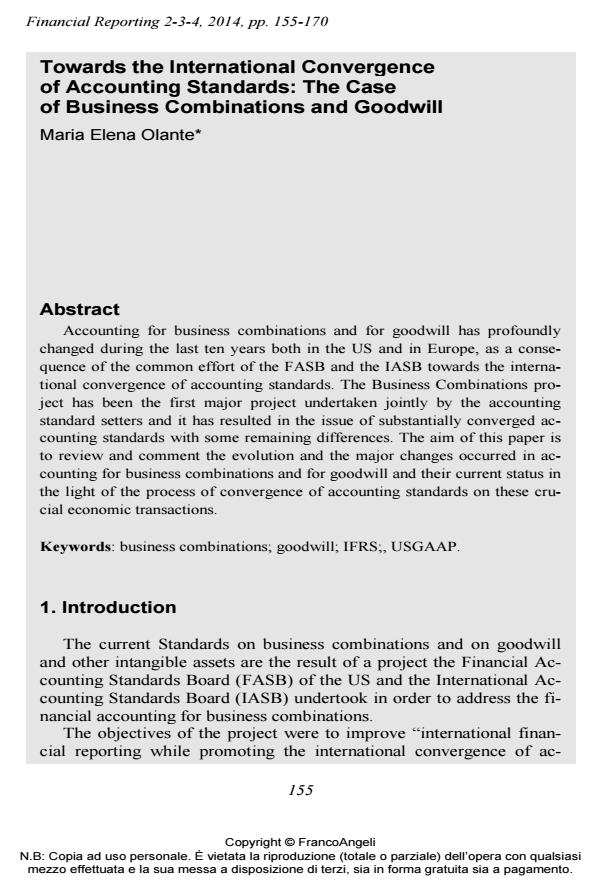Towards the international convergence of accounting standards: the case of Business Combinations and Goodwill
Titolo Rivista FINANCIAL REPORTING
Autori/Curatori Maria Elena Olante
Anno di pubblicazione 2015 Fascicolo 2014/2-3-4
Lingua Inglese Numero pagine 16 P. 155-170 Dimensione file 209 KB
DOI 10.3280/FR2014-002007
Il DOI è il codice a barre della proprietà intellettuale: per saperne di più
clicca qui
Qui sotto puoi vedere in anteprima la prima pagina di questo articolo.
Se questo articolo ti interessa, lo puoi acquistare (e scaricare in formato pdf) seguendo le facili indicazioni per acquistare il download credit. Acquista Download Credits per scaricare questo Articolo in formato PDF

FrancoAngeli è membro della Publishers International Linking Association, Inc (PILA), associazione indipendente e non profit per facilitare (attraverso i servizi tecnologici implementati da CrossRef.org) l’accesso degli studiosi ai contenuti digitali nelle pubblicazioni professionali e scientifiche.
Accounting for business combinations and for goodwill has profoundly changed during the last ten years both in the US and in Europe, as a consequence of the common effort of the FASB and the IASB towards the international convergence of accounting standards. The Business Combinations project has been the first major project undertaken jointly by the accounting standard setters and it has resulted in the issue of substantially converged accounting standards with some remaining differences. The aim of this paper is to review and comment the evolution and the major changes occurred in accounting for business combinations and for goodwill and their current status in the light of the process of convergence of accounting standards on these crucial economic transactions.
Parole chiave:Business combinations; goodwill; IFRS;, USGAAP
- The complexity in measuring M&A performance: Is a multi-dimensional approach enough? Elisa Roncagliolo, Francesco Avallone, in FINANCIAL REPORTING 1/2021 pp.89
DOI: 10.3280/FR2021-001004
Maria Elena Olante, Towards the international convergence of accounting standards: the case of Business Combinations and Goodwill in "FINANCIAL REPORTING" 2-3-4/2014, pp 155-170, DOI: 10.3280/FR2014-002007